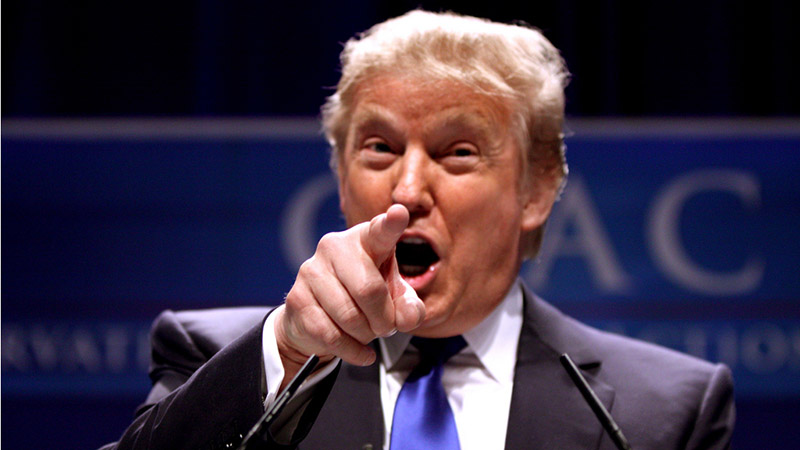Donald Trump finally released his long-anticipated executive order to dismantle the bulk of US climate policy this week.
It is a betrayal of the Paris Agreement, whether or not the US president formally pulls out of the climate pact – a decision he is set to make by the G7 summit in May.
Will it boost America’s energy independence? Create jobs? Revive the coal industry? No, no and no, writes Richard Black.
What it will do is make US citizens unsafe, says Saleemul Huq, extending a hand of solidarity to the American people. Bangladesh can share a lesson or two about adapting to the impacts of climate change.
Quote of the week
“It is very disappointing, especially because in Paris we bent over backwards to accommodate the US” – South African ambassador Joyce Mxakato-Diseko on US backsliding
UN climate chief Patricia Espinosa posted a muted response, saying she was “watching these developments with interest”.
Watch and wait is seemingly all her staff can do as the US threat to cut its usual €4 million annual contribution – 15% of the organisation’s core budget – looms.
America would not be the only country to lapse on its payments to the climate process, though. At the last count, Brazil owed more than €1m. Know why? Email me: [email protected].
‘Cold meat’
Brazil correspondent Fabiano Maisonnave tagged along on the raid of a meatpacking factory. Code name: Cold meat.
Environmental protection agency Ibama put two plants run by meat processing giant JBS under embargo for buying tens of thousands of cattle from illegally deforested areas.
The sanctions exposed a rift between Brazilian institutions, with environment minister José Sarney Filho, who oversees Ibama, apologising for the raid.
Palmed off
EU lawmakers are seeking to ban another trade linked to deforestation: palm oil used for biofuels, a growing driver of demand under the bloc’s renewable fuel mandate.
Producer countries including Indonesia, Malaysia and Colombia are warning such a move could violate trade rules, reported Arthur Neslen from Brussels.
Number of the week
The Indian government is aiming to get 6-7 million electric vehicles on the road by 2020. It is why they country’s biggest oil companies are eyeing up lithium battery technology, reports Moushumi Basu.
Warm poles
In yet another weird weather warning, sea ice area in the Arctic and Antarctic hit record lows for March, just days apart.
The extremes at opposite ends of the earth added up to the loss of a frozen expanse the size of Mexico, NASA scientists said.
Hidden health crisis
Karl Mathiesen reported from Kariokor roundabout, Nairobi, where vegetable sellers and mechanics daily breathe in filthy air.
How filthy? Nobody is monitoring. But people’s asthma and respiratory infections tell their own story.
Look East
In what has become a familiar pattern, Trump’s assault on climate rules was swiftly followed by assurances that China was staying the course.
We highlighted Beijing’s clearest statement of intent yet, in a largely overlooked speech to the UN. But don’t load the emerging superpower with unrealistic expectations, warns an editorial in the Global Times, a Chinese daily tabloid.
Slamming Washington’s “political selfishness”, it said: “No matter how hard Beijing tries, it won’t be able to take on all the responsibilities that Washington refuses to take.”
Cicero researcher Glen Peters reminded us how bad we have been at predicting China’s emissions pathway so far. While there are signs coal burning could have peaked, he urges caution in interpreting the data.
